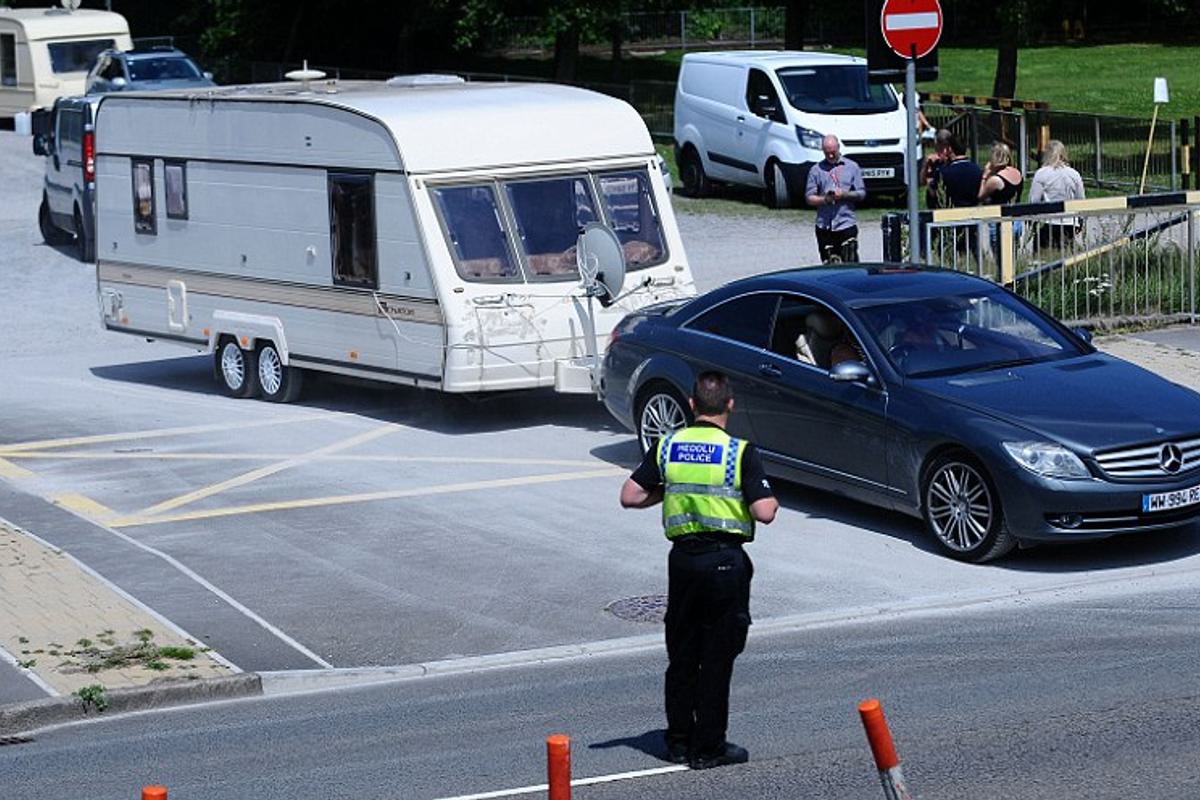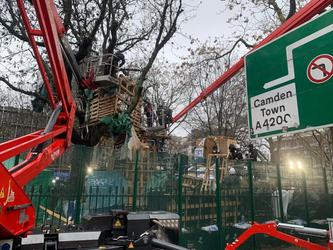Eviction from a licensed traveller site

Local authorities frequently have to remove travellers from land or the roadside, but they also have to remove occupiers from licensed traveller sites, a far more challenging situation, where we often find barricades and physical resistance through violence and intimidation.
Court order required
When it comes to a licensed site, a court order is required. A local authority may decide to terminate the agreement of an occupier on a licensed site where:
- The occupier has breached a term of the agreement
- The occupier is not occupying the mobile home as their only or main residence
The condition of the allocated site (known as a plot or slab) is such that it is having a detrimental effect on the site.
Breaches
A notice to remedy the breach must be served on the occupier, unless the breach is so serious as to be incapable of remedy. However, it might be advisable to serve notices in all cases.
When enforcing the writ, we find that the most common breaches are:
- Allocation of a pitch to another party
- Allowing others to join them without consent
- Antisocial behaviour
- Trespass, i.e. occupying the site without permission or agreement
After a successful application to court to terminate the agreement, the next step is to apply for an order to regain possession; both are normally applied for in the same proceedings. The order for possession may then be transferred to the High Court to be enforced by an HCEO under a writ of possession.
No right to assign
There will normally be a long waiting list for plots, and the local authority is required to comply with the requirements of the Housing Act 1996 when determining priority of allocation of plots. The right, under the Mobile Homes Act 1983, to assign a plot to another does not apply on licenced local authority sites.
How and why it’s different
Removing occupiers from a licensed site is fundamentally different from removing travellers in transit. Those is transit will be expecting to be moved on a regular basis and, in the main, accept this as part of the process.
On licensed sites, however, some occupiers will have been living there for a considerable time, some families have been established 20 or 30 years, even their entire life, and will not accept removal with such equanimity.
Local intelligence is key
Risk assessments and detailed operational planning are always an essential part of preparing for an eviction, never more so than when resistance, and potentially violence, are likely. Knowing the nature and complex dynamics of the particular site is an essential part of that preparation. Working with the Police is essential on cases of this nature, ensuring resources are available.
Intelligence might include knowing about ongoing disputes and hostility between family groups on site, who the influential people are within that particular group and who may be highly influential, and the likelihood use of barricades to prevent removal. Blockades we have experienced can include vehicles with flat tyres in front of caravans, which then have children placed inside.
Leader of the site
The influencers of the community can support the objectives of the HCEO and their team, if they feel it is in their interest to do so. We had once instance where they told the family in question to stop their resistance and leave, which they did.
We worked on another site where we developed good rapport with the leader of the site and, after two weeks of negotiation, the occupiers moved themselves peacefully, which was a great result as the chances of violence had been very high.
HCEO responsibilities
The HCEO’s only authority is the land identified in the court order and is only responsible for clearing that land. The securing of the land to prevent reoccupation is the responsibility of the local authority. Where the land needs clearing of rubbish, separate arrangements can be contracted.
If you would like to know more about the removal of travellers, whether from the roadside or a licensed site, please do get in touch.



